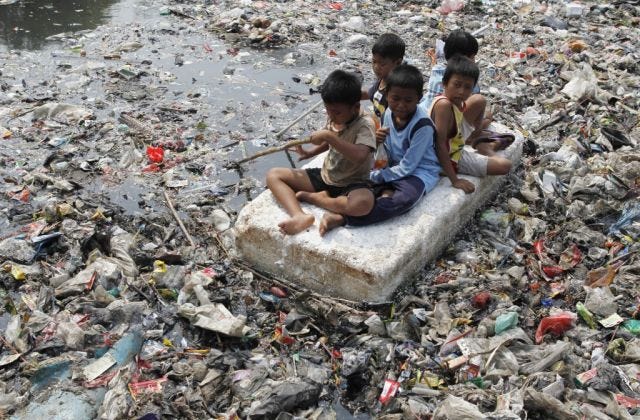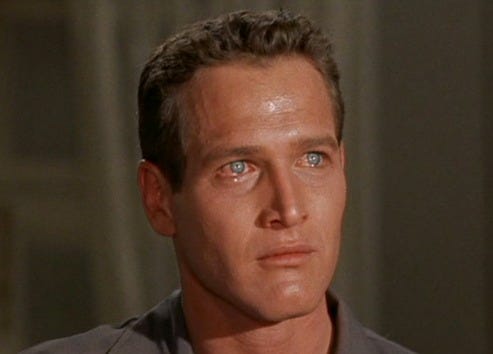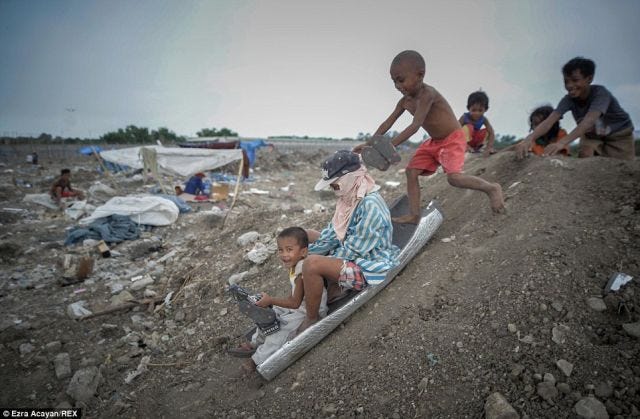EPISODE 108: A WORLD FULL OF CHARLIES
POP CULTURE SPIRIT WOW
Over the summer, I had the opportunity to see the stage version of “Charlie and the Chocolate Factory”, which has been playing in London’s West End for the last three years.
(Actually when I first arrived at my seat it seemed more like I had garnered the opportunity to hear the stage version of “Charlie”, as this was what greeted me:

I actually told the guy, who was an American, "I have to admit, seeing you I am terrified about what the next two hours might hold." He did not find this all that funny. Thankfully, the seat one row back was also available.)
I didn’t remember the story very well. In fact all I knew going in was that the show has had very mixed reviews. Many have been surprised and unhappy to find that all but one of the songs from the original film are gone (a bizarre choice – I don’t care how clever you are, you are never going to come up for a better song than this); some have also complained that the first act is boring.
And I can see that – while the second act takes place in the crazy wild fantasy/nightmare that is the Chocolate Factory*, pretty much the entirety of Act One is Charlie Bucket, his parents and his grandparents in their one room, open-to-the-elements ramshackle house, contending with the absolutely most dire poverty. Their situation is so bad that Charlie’s parents each have to leave for days at a time looking for work--and never find any; they live on nothing but cabbage soup and the occasional boiled potato (which his grandparents always give to Charlie); and the family has so little they literally can’t afford a candy bar. Frankly, it’s the situation of a lot of people in real life; but not exactly compelling source material for a musical.**
* A land made out of candy might be every child’s dream, but there’s also something deeply disturbing about the concept. A little sugar is a good time; nothing but sugar? Pretty much poison.
** He says, hoping you will forget “Oliver”, “Billy Elliott”, “The Color Purple”, parts of “The Book of Mormon”, and a lot of other shows.
But I have to say, that first act broke me in all the right ways, so much so that when I discovered Act II was just one long episode of “Survivor”, but with children, candy and a creepy adult, I was still immensely happy I had seen the show.
The show opens with Charlie picking his way through a trash heap – again, a thing that actually happens in the world we live in and just the idea of which is like having your heart stomped on repeatedly until we flee, unable to cope.


(Sometimes "I had no idea" is just a synonym I use for “This hurts too much”.)
And yet, Charlie sees it differently: every bent umbrella or mate-less glove we toss out not garbage but “almost nearly perfect”. “Your trash is my treasure”, he sings in a happy, playful song seemingly oblivious to his reality.
His parents and grandparents are much the same, turning their horror show of a life into opportunity. A broken-down bike becomes a way to generate a little electricity. The massive hole in their roof means they might be able to see a shooting star. And though cold and hungry, the adults spend their nights entertaining Charlie with stories of Willy Wonka.
When he sleeps, his parents speak honestly about their situation. And it just adds to the enormous and beautiful pathos of the story. You can listen to their song here. My favorite lines are the bridge about halfway through, where his mother sings to Charlie:
And if wishes were horses, we could gallop away
And if cabbages were watches, I would know the time all day.
Ah, but all we can offer you are dreams in every size,
so close your eyes, Charlie Bucket, close your eyes.

Seriously, did it just get dusty in here?
Meanwhile, before the contest is announced Charlie writes a letter to Willy Wonka. I dare you to listen to it and not cry like a baby.

I know. Me too.
That’s right—he’s a poor little boy filled with dreams and writing to his hero, and yet all he wants from Wonka are a couple little things to help each member of his family. For himself, “if it’s not too much trouble”, he asks for “one Wonka bar, which I would share with you.”

I’m writing this in a Starbucks and seriously looking like this--including the repetitive action.
(Weird coincidence-Most of the best crying gifs come from "Glee":



I am definitely not pointing this out to try and avoid dealing with my own feelings. Not at all. Don't be ridiculous.)
When I saw this show I had just finished volunteering with Jesuit Refugee Services in Malta. (Malta: imagine the bleached out sunshine and traffic of Los Angeles, compressed in a much tinier space.) Refugees in Malta have it better than some of the scenes we see on television; there are no prison-like camps here any more. (In fact, almost all refugees who come by boat are now brought to Italy.)
But there’s not a lot of resources provided, either. In fact, believe it or not many refugees I met were disappointed when they were given genuine refugee status by the Maltese government, because it meant that they could no longer apply for status in other E.U. countries, or the United States.* They were now stuck here.**
*Bizarre but true: The U.S. has some sort of arrangement with Malta to take a certain number of refugees whom the U.S. deems legitimate asylum seekers. But, those who have already been given status by Malta are not eligible to apply until after every other potential refugee has been considered. Which means practically speaking that they have no chance of getting a spot. Kafka would have a field day.

** Every refugee to whom I spoke that had been on Malta for any length of time pointed out that while Malta was willing to give them refugee status, no refugees had been allowed to apply for citizenship (or anything else of real permanence). Which meant they were not able to leave Malta for more than 90 days, and also that some countries would not allow them in even to visit. (One woman I met had been to the U.K. a number of times in her work as a translator; now she gets turned away, even with official documentation from her employer proving that she is indeed just there for work and will be returning to Malta.)
So even if you get status on Malta, you more or less remain in a permanent limbo. And again, this is better than most of the world’s refugees have it.
Yet in my short time on Malta I saw shy refugee children talking with quiet excitement about school; teenagers in birkas laughing and texting on their phones; and women of all ages taking a rickety van on a helter-skelter path across eastern Malta three days a week for a two hour English class, their attention on learning absolute. Their lives were difficult in ways I couldn’t really comprehend – I keep thinking about the woman who pointed out, No one really stops to imagine, what would it be like if you could never go home.
But there they were, like the Buckets, seeing not just in a different way but a bigger way.



++ LINKS ++
Gene Wilder died this week. And as much as he’s known for his crazy Mel Brooks films, it’s his turn as Wonka that I think has most affected people. (In particular this song.)
I don’t usually post links to my own stuff here – you already get enough of that. But I did a little piece on Wilder and spirituality for America Magazine that you might like.

+
By complete coincidence, the Monthly just did a great article on Roald Dahl. Turns out, that idea of seeing treasure in the rubbish of life comes from a pretty personal place.
Also by complete coincidence, my 7 year old nephew Patrick just finished a show-stopping turn as James in the Cricket Theatre Company’s “James and the Giant Peach.” Which also, by yet another complete coincidence, was one of my favorite books growing up. Living in a food item that rots pretty quickly seems neither practical nor hygenic, but the concept of magically flying away from a horrible situation sure did make sense some days.
+
And if you're fascinated by treatments of British children's book authors, this podcast about an interactive theatrical performance of Alice in Wonderland is a must.
+
And speaking of garbage, a great story of how four business students from Penn are trying to help double the income of people who survive by recycling trash.
+

Lastly: this week I had the chance to do a talk for a Jesuit retirement community on social media. It was enormously interesting. One guy asked me, “Do you think social media is a net good or bad for humanity?” And I had lots of positive things to say; I very much enjoy social media myself.
But I was surprised to find myself thinking the net balance is still maybe not great. I love a good meme or link as much as anybody, but is my life actually tangibly better for all of it, or more distracted? I’m just not sure.
Anyway, as part of the effort I put together the beginnings of a “Humans of New York”-style Instagram page for them. It was all very last minute, but I was still sort of blown away by the things people shared. You can find it under “HumansofSacredHeartJC” or (I think) here.
+
If you like what you’re reading, tell your friends. And have a great Labor Day. If life seems banal right now, remember, as you’re sipping your coffee and reading this and wondering what’s the point of everything you’re also flying at an incredible speed around a freaking star.

